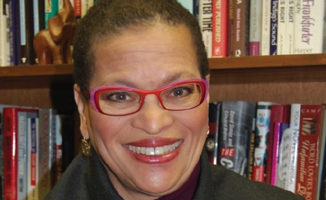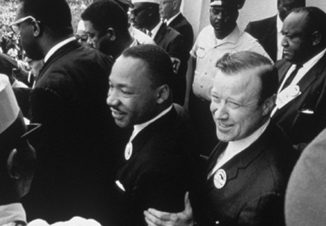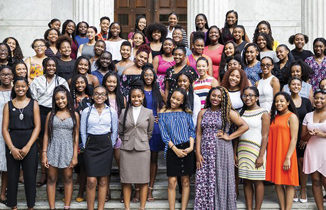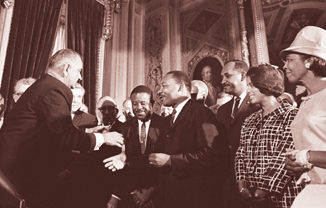
The Newest False Promises
The Newest False Promises […]

The Newest False Promises […]

Campaigning for the presidency in 2016, Donald Trump promised that, if he was elected, “American worker[s] will finally have a president who will protect them and fight for them.” […]

Today there are over 44 million student loan borrowers whose growing reliance on loans corresponds with the still-rising cost of higher education. Except for the financially well-off, student loans are being used more, not less, and include consumers of varying income levels. […]

If we women were honest, we would say that we have all cosigned patriarchy in the interest of keeping it moving. We have deflected the sexist comments that come our way, even as we cringe from them. We smile at men that we abhor because they may have decision making power in their hands. We dress up or dress down depending on the occasion and the way we have to play the game. We know the system is slanted against us, we know we still have to play, and we decide when we choose to blow the whistle, a whistle we could blow every single day. […]

Known as “surprise medical billing,” these unexpected costs arise when a patient goes to a hospital for emergency or non-emergency care, only to find out afterwards that one of the medical providers who administered care was not covered in the patient’s insurance network. […]

In the summer of 1963, Reuther teamed up with Dr. King in Detroit for The Walk to Freedom, the largest Civil Rights demonstration in U.S. history at that point, with an estimated 125,000 people attending. Led by Dr. King and President Reuther, the massive march down Woodward Avenue drew attention to matters close to the Equal Rights mission and to the UAW — racism, segregation, discrimination and inequality in hiring, wages, education and housing. […]

Jacqueline Glass-Campbell, CEO of At the Well Conferences, Inc. (ATW), celebrates molding the masterminds of tomorrow with her unprecedented Ivy League summer enrichment program, At the Well Young Women’s Leadership Academy. It takes place July 19-July 31, 2020 at McCormick Hall, Princeton University. The application deadline is March 31, 2020. […]

Smith got her start as a fashion model. In 1969, her first big break came when she won a place with the Ebony Fashion Fair, a groundbreaking show produced in tandem with Ebony magazine that traveled across the country. […]

Brainly, the world’s largest online learning platform, recently surveyed more than 1,700 U.S. students to understand better what they know – and don’t know – about Dr. King, his life, and his legacy. It turns out: the answer is not much. According to the data, 63 percent of U.S. students incorrectly identified Dr. King’s accomplishments or were not aware of some of the most important things he did to contribute to America’s Civil Rights Movement. […]

“I intend to work for @cindyhydesmith as if the fate of America depended on her single election,” Gov. Phil Bryant tweeted on January 2. “If Mike Espy and the liberal Democrats gain the Senate, we will take that first step into a thousand years of darkness.” […]
The Westside Gazette @ 2023 - Site Designed by No Regret Media